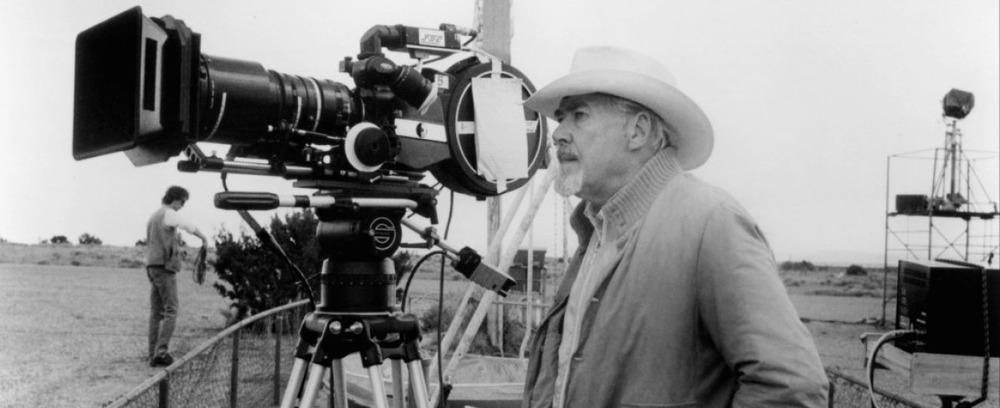Critical Cinema - Robert Altman Master Series
Posted on Thursday, September 17, 2015 at 06:00 PM

Robert Altman Master Series
Critical Analysis by Critical Cinema X CalgaryMovies.com
This 2015-16 season, the Calgary Cinematheque invites our audience to reflect on one of the most highly regarded and influential directorial careers in American filmmaking history, that of Robert Altman.
Among the numerous accolades, Altman’s work has enjoyed overwhelming recognition in the form of critical analysis and praise. Not only do we all share a particular attachment to Altman’s films, but also his style and his uneasy relationship with established Hollywood convention. When we think of Robert Altman we think of genre-bending, we think of multilayer dialogue, we think of ensemble casts and an infallible sense of location. Ultimately, when we think of Altman the most fondly, it is in the 1970s. For our 2015-16 Master’s Series It seems only appropriate to offer an acute retrospective from a period in which his work exemplified the Maverick style for which he became known.
Spanning 1971 to 1977, and located rightly during the “Hollywood Renaissance of Directors,” the films inherent to this collection showcase Altman’s unrelenting tendency to de- and then re-construct Hollywood genre, his unmistakable blending of scripted and improvised dialogue, and the trademark of a uniquely mobile camera.
MCCABE & MRS. MILLER (1971) is one of his earliest anti-genre films. In this case, Altman takes on the Western and it’s hallmarks of a confident hero and streamlined sound design. Instead McCabe (Warren Beatty) and Mrs. Miller (Julie Christie) are embedded in a multi-protagonist cast who all seem to co-exist long before and after the camera arrives. Likewise, unprivileged dialogue speaks to the complete unobtrusiveness of the film and to Altman’s propensity for subversive formal tactics in general. One of three Altman films to be selected for preservation in the United States National Film Registry, MCCABE & MRS. MILLER was also selected as eighth on the American Film Institute’s Top 10 Westerns list.
In NASHVILLE (1975) Altman assembles a powerful cast of multi-talented performers to compose a truly authentic soundtrack. Featuring a myriad of actor-singers, many of whom wrote and performed their own songs, this film is one of the most decorated and best loved of Altman’s works. Nominated for five Oscars, including Altman’s first Best Picture nomination and his second for Best Director, NASHVILLE even brought home the Oscar for Best Song. In sum, with its multi-layer storylines and overlapping dialogue, it is a comprehensive testament to characteristics that would become synonymous with his filmmaking style.
Altman came to realize two adaptations with his films THE LONG GOODBYE (1973) and THIEVES LIKE US (1974). The first, a revision of Raymond Chandler’s 1953 novel by the same title, allowed Altman to satirize the ways society had changed in the twenty years since the novel’s release. This film is a prime example of Altman’s trademark style of a constantly moving camera. There are no static shots in the film. Almost all of the music in the film is varied arrangements of the theme tune. The second, THIEVES LIKE US, pairs Shelley Duvall and Keith Carradine as romantic leads and ultimate Altman-esque anti-heroes. In keeping with his taste of complex and layered sound, no score was composed for the film; instead all music is diegetic. Radio programs feature prominently in the background of the film. This was an early example of Altman’s love for and inclusion of radio programs.
Altman’s successes through the 1970s allowed him the freedom to make a film with a bare bones script based on a dream he had. That film was 3 WOMEN (1977). Legend has it that Altman successfully pitched the film while making a brief stop at Alan Ladd Jr.’s office on the way to the airport the night after his dream. Shelley Duvall and Sissy Spacek’s engrossing performances garnered acting awards from Cannes Film Festival, New York Film Critic Circle and Los Angeles Film Critics Association.
-END-

NOTE: The showtimes listed on CalgaryMovies.com come directly from the theatres' announced schedules, which are distributed to us on a weekly basis. All showtimes are subject to change without notice or recourse to CalgaryMovies.com.